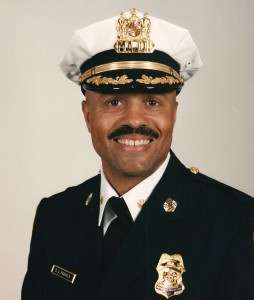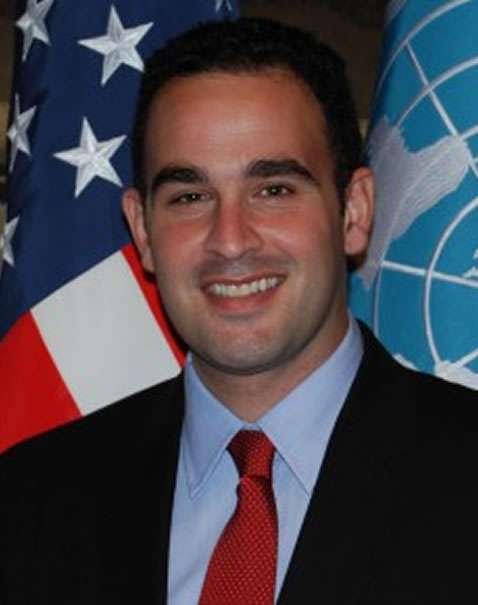Reactions to Marijuana Votes: 'Prohibition Is on Its Way Out'
Yesterday the number of states that have approved marijuana legalization doubled, and they were joined by the nation's capital, where voters overwhelmingly rejected pot prohibition. Even in Florida, where a medical marijuana initiative fell two points short of the supermajority needed to approve a constitutional amendment, 58 percent of voters agreed that patients should be allowed to use cannabis for symptom relief. Meanwhile, voters in Guam approved medical marijuana, making the Western Pacific island the first U.S. territory to do so. Drug policy reformers were thrilled by the results, which exceeded expectations. Prohibitionists were less delighted. Here is a roundup of reactions.
ON GUAM

Tom Angell, chairman of Marijuana Majority: The marijuana majority is a truly global phenomenon. People all across the world are ready to move beyond failed prohibition laws, especially when seriously ill patients are criminalized just for following their doctors' recommendations. With these election results, U.S. territories stretching from Guam—where America's day begins near the International Date Line—to Hawaii and Alaska have sensible laws that let patients use marijuana without fear of arrest.
Ethan Nadelmann, executive director of the Drug Policy Alliance: Guam is quite conservative politically, and home to a significant U.S. military presence, so this resounding victory is a confirmation of medical marijuana's broad support across the political spectrum.
ON D.C.

Angell: With marijuana legal in the federal government's backyard, it's going to be increasingly difficult for national politicians to continue ignoring the growing majority of voters who want to end prohibition. I've been saying for a while that 2016 presidential candidates need to start courting the cannabis constituency, and now the road to the White House quite literally travels through legal marijuana territory.
Bill Piper, DPA's director of national affairs: This was the first legalization campaign in which the racial disproportionality of marijuana enforcement played a major role. Initiative 71 sets the stage for the D.C. Council to create a new model for legalizing marijuana—one that places racial justice front and center.
Neill Franklin, executive director of Law Enforcement Against Prohibition: Each Congressperson must choose how he or she wants to be remembered in history: as someone who respected the people's wishes and worked to end one of the most pernicious problems of the 21st Century, or as an anachronism, like those prohibitionists who refused to see the writing on the wall in the 1930s.
ON OREGON
Angell: It's clear that Colorado and Washington voting to legalize in 2012 was no anomaly. The trend is clear: Marijuana prohibition is coming to an end. As 2016 approaches, we can expect to see many more ambitious national politicians finally trying to win support from the cannabis constituency instead of ignoring and criminalizing us.
Nadelmann: Oregon proved that Colorado and Washington were no flukes….It's always an uphill battle to win a marijuana legalization initiative in a year like this, when young people are so much less likely to vote, which makes today's victory all the sweeter. The pace of reform is accelerating, other states are sure to follow, and even Congress is poised to wake from its slumber.
ON ALASKA
Angell: Now that it's been shown that putting marijuana legalization on the ballot can succeed even in midterms, we can expect to see a huge surge of additional states voting to end prohibition during the 2016 presidential election. And because the issue has been proven to be mainstream as far as voters are concerned, we may even see lawmakers in several states jumping ahead to legalize marijuana legislatively in the meantime.
Chris Rempert, political director of Alaska's legalization campaign: People are seeing through the fear mongering and misinformation that have been used to keep marijuana illegal for so many years. One of our campaign's primary messages was that marijuana is less harmful than alcohol, and that adults should not be punished for making the safer choice.
ON FLORIDA

Angell: Tonight's result does show that a clear majority of voters in the Sunshine State support a new direction. We didn't get the 60% needed to pass medical marijuana as a constitutional amendment, but patients and their supporters will keep pushing until the law reflects what most voters want. The campaign this year faced several key challenges, including that it took place during a midterm election in which turnout dynamics don't favor marijuana reform. Next time medical marijuana is on the ballot, organizers should put patients and medical professionals at the forefront of the campaign rather than relying on a well-meaning but much less sympathetic political donor as the chief spokesperson.
John Morgan, leader of the medical marijuana campaign: We may not have passed Amendment 2 tonight, but make no mistake, tonight was a victory in the fight for medical marijuana in Florida. Our next governor will take the oath of office having won less than a majority of Floridians' votes. The idea that marijuana is medicine and that those suffering and in pain should not be made criminals, received a larger share of the vote than the winner of the last 6 gubernatorial elections…and every presidential campaign in Florida for decades.
Calvina Fay, executive director of the Drug-Free America Foundation: The people of Florida strongly and wisely rejected efforts to make Florida the next front in the push to legalize marijuana nationwide….By rejecting this misguided amendment, they chose to safeguard our communities and ensure a safer and more prosperous future.
ON THE OVERALL RESULTS

Rob Kampia, executive director of the Marijuana Policy Project: The results are in, and marijuana prohibition is on its way out….The folks trying to keep marijuana illegal are relying on the same scare tactics today that they have relied on for decades, but voters just aren't falling for it anymore. The results are particularly encouraging since voter turnout during a midterm election is typically smaller, older, and more conservative. Clearly, support for ending marijuana prohibition spans the political and ideological spectrums.
Paul Armentano, deputy director of NORML: The majority of voters in these states, like a majority of voters nationwide, agree that a pragmatic regulatory framework that allows for the legal, licensed commercial production and retail sale of cannabis to adults best reduces the risks associated with the plant's use or potential abuse.
Patrick Kennedy, co-founder of the anti-pot group Project SAM: Even though we did not do as well as we wanted to, these slim margins of victory show that we are beginning to slow the legalization freight train down. This has been a David and Goliath battle.
Kevin Sabet, president of Project SAM: This was not the complete slam-dunk the legalization groups expected. Alaska barely voted to legalize, and several cities [in Colorado] rejected marijuana retail stores outright. We are confident the more people know the truth about marijuana and the Big Tobacco-like marijuana industry, the more opposition to marijuana legalization will continue to grow. We will redouble our efforts to educate the public about the harms of legalization.
U.S. Department of Justice (via Free Beacon reporter C.J. Ciaramella): When we developed our department priorities over a year ago, we intended to set out a consistent enforcement approach that would be applicable across the country. As our Aug. 29, 2013, guidance memorandum laid out, the department's enforcement resources will continue to be aimed at the most significant threats to our communities. This approach relies on jurisdictions instituting strict regulatory regimes to adequately protect public safety.
Editor's Note: As of February 29, 2024, commenting privileges on reason.com posts are limited to Reason Plus subscribers. Past commenters are grandfathered in for a temporary period. Subscribe here to preserve your ability to comment. Your Reason Plus subscription also gives you an ad-free version of reason.com, along with full access to the digital edition and archives of Reason magazine. We request that comments be civil and on-topic. We do not moderate or assume any responsibility for comments, which are owned by the readers who post them. Comments do not represent the views of reason.com or Reason Foundation. We reserve the right to delete any comment and ban commenters for any reason at any time. Comments may only be edited within 5 minutes of posting. Report abuses.
Please to post comments


I think that Alaska and DC is the beginning of the death throes of cannabis prohibition.
If it would have just been Oregon, as I thought it might be, then the drug warriors could keep on crowing 'aww, it's just those few far left states up there in the NW, they're crazy anyway'. But with Alaska and DC, it's a huge defeat for the prohibition crowd. Just a couple more states and there will be no turning this back. I already think there is no turning it back.
I don't find Alaska much of a surprise. It's conservative, but largely in a "leave me alone" kind of way. And its been kinda-sorta legal to grow and keep it in your own home for a long time.
I have no idea how typical my experience is, but when I went there for a few weeks several years ago, it seemed like it was pretty much legal already. People smoked at bars and pretty much anywhere else they wanted to, I saw more than one business with a little weed plant growing out front and most of the local people I met seemed to either grow weed or sell weed to tourists.
Cannabis prohibition in America is where the USSR was in the very late '80s. Just waiting for the fat lady to sing. Yesterday was, on balance, a pretty good day for freedom. Libertarian Moment!
The dominoes are toppling ever faster...
Each Congressperson must choose how he or she wants to be remembered in history: as someone who respected the people's wishes and worked to end one of the most pernicious problems of the 21st Century, or as an anachronism, like those prohibitionists who refused to see the writing on the wall in the 1930s.
They'll be remembered as cut-and-runners in the Global War on Drug Users, and their cowardice on the battlefield leading to little Timmy shooting up the marijuana on the playground with law enforcement having no tools to stop it.
They'll be remembered as cut-and-runners in the Global War on Drug Users, and their cowardice on the battlefield leading to little Timmy shooting up the marijuana on the playground with law enforcement having no tools to stop it.
Ok, that's how it would play out in the fevered mind of the prohibitionists, but in the real world, since there won't be any reefer madness, it will play out a little differently.
But what about Neill Franklin's job? Without the WoD, Neill Franklin will have no home to go home safely to at night.
He'll have to cut that extra L to get by.
No worries there. We are no where close to an end to the war on drugs. Prohibition of "bad" drugs like heroin and methamphetamine remains very popular.
So what's funnier: the image of Kevin Sabet crying all day because his idiotic crusade to retain the prohibitionist status quo is crumbling before his eyes, or that he will cry all day and nobody will call to console him?
Both
In fact, the only thing that could be better is to see Patrick punchable face Kennedy crying on the teevee.
Oh, that would be sweet.
OT:
So, they can't call her Uncle Tom, so what will be the term that the proggies come up with to spew their vile hatred?
Mia Love
I know what they are saying in private.
Aunt Jemimah? Bitch? Who knows? I'm sure they will figure something out.
Is she Mormon? If so they can probably just use that to dismiss her as not really black black.
KochWhore, would be my guess.
"..the road to the White House quite literally travels through legal marijuana territory."
Interesting development.
Legalization is coming to Louisiana and it would probably pass now except that Bobby Jindal won't sign it. He said he knows it is inevitable but he doesn't want it to happen on his watch. Oops, did he just kill his presidential chances?
This has to be xmas, the gifts just keep coming.
I hope the fact that Jindal is not a natural born Citizen will kill his presidential chances along with Cruz and Rubio. Then we get Obama ruled a usurper and all of his signed legislation vanishes.
But for the lub of Jeebus, could someone shut Karl Rove the fuck up? No Rove, this is not a mandate for moar warz, you numbskull.
No shit.
The neocons seem to think that the election yesterday was their mandate to bring back all of the policy failures that swept the idiot we have now into office.
It is past time for the old guard republican establishment to go. My intuition tells me that they are beginning to and just don't know it yet.
Somehow, I doubt even the more Cruz-esque Republicans who don't have Rand's aversion to foreign action are all that pumped up for foreign activities beyond bombing ISIS and 'moral support' for Ukraine.
Before 9/11, those Republicans didn't want more wars or foreign interventions. I think W said as much in his 2000 campaign. Obviously, that was forgotten in the Afghan and Iraq wars.
I think the scare mongering is getting old. Cruz-Republicans are seeing that "freeing" Iraq and Afghanistan didn't do anything of the sort. The nationals were infighting and being corrupt while occupied and that continued when most of the troops returned to the US too. In other words, Cruz Republicans see the wars of the 2000s as a waste.
Rove, McCain, McConnell and Boehner need to fuck off at the very least.
Well, you got to realize that part of the criticism against Obama was from Republican warmongers complaining he wasn't warmongering enough (to paraphrase). They will of course take this electoral victory as a mandate that there should be more warmongering.
This is good. Seems pretty likely that at least CA and NV will legalize in 2016. I'd love to see some legislatures get in on it.
I think FL will too (medical though). I mean it got 50+% approval with virtually no one under 50 casting a ballot.
That was huge. Most successful 'failure' of the MJ reform movement.
It's bizarre to me that something that received 57% of the popular vote won't become law in the near future. While FL is heavily gerrymandered and I wouldn't show much hope if this was your normal Red vs. Blue issue, opposition to the drug war is gaining heavy support on both sides of the aisle.
Fuck that, after that really painful 2% loss, I think they ought to just go full out recreational in 2016 -- The electorate will pass it then.
This was an odd time to try getting 60%, since less Pro-pot Dems voted, and fewer young people than during Presidential elections. And it still came close.
Not sure if recreational would pass in FL, but it'd sure be nice. I don't like to drink, and so it'd be nice to get a buzz on without risking a felony.
As far as ballots go:
I think CA and NV are definite
Montana and Maine are probable
Mass and Mississippi are No's
I do not know about AZ or WY, but legalization issue will only get easier with time
NH might as well pass a bill to legalize again.
Yeah, but we still have the same stupid governor who will veto any such thing.
I'd love to see some legislatures get in on it.
Exactly. California is inevitable, why don't they just go ahead and do it now legislatively instead of making everyone wait and go through an expensive campaign?
Because the latter won't cost any candidate votes, the former might.
Patrick Kennedy, co-founder of the anti-pot group Project SAM: Even though we did not do as well as we wanted to, these slim margins of victory show that we are beginning to slow the legalization freight train down. This has been a David and Goliath battle.
Lol, Kennedy thinks the drug warriors are winning. Total denial, what a dumbass.
Swingers casino scene anyone?
"DOUBLE DOWN!"
Begs for a parody using this template: http://www.youtube.com/watch?v=t7PmzdINGZk
It is simply hilarious that he thinks he is the David in the fight.
Yeah, there is some big money on the legalization side, but there are whole departments of the Federal fucking government fighting to keep prohibition in place and no shortage of credentialed assholes.
The legalization freight train is the light at the the end of the tunnel that he sees.
There are still some Kennedys alive?
The drug war -- which has been enthusiastically supported by the Parties' establishments for decades -- suffered the biggest losses yesterday, in my opinion.
How Congress will react to decriminalization in DC is, I think, the biggest question now? Is there a Congressional coalition strong enough to even force through legislation nullifying DC's referendum? Most Congresspeople now come from states or localities that have legalized medical marijuana, decriminalized personal possession, legalized its sale and/or will legalize its sale in the next 2-4 years. Barbara Lee and Dana Rohrbacher -- California representatives on the exact opposite sides of the political spectrum -- are on the same side on this issue. Even if you're personally anti-marijuana, it is now expected for you to think the federal government should just let states and localities do whatever they want (we could not have said this even a decade ago).
Seriously, what will Congress do now?
Well, if history is any guide, double down on stupid by following marching orders from the Drug-Industrial Complex.
Again.
OT:
Taking a moment to celebrate the failure of GMO labeling initiatives (including Oregon).
Companies can voluntarily label their foods "NO GMO PRODUCTS USED". That's as good as if not better than mandating GMO labeling, IMO.
If people complain that there is no government oversight of this voluntary labeling, an offending company can still be civilly sued if it defrauds its customers (not sure what the damages can possibly be but whatever). Relying on a government agency which can be captured by the industry it's regulating is riskier to me.
Oddly enough, food gets certified Kosher (or not) with zero government involvement at all.
So annoyed at the FL result. Yeah, it's coming eventually, but after moving from a MM state to FL, it's small consolation to think, "It'll just be a couple years' wait before possessing edibles here isn't a felony... For those with a medical excuse."
Why is it so damn difficult in this country to find someplace that allows one to better himself economically and at the same time isn't filled with "burn the witch" types willing to break down your doors and throw you in jail to save you from yourself? My wife's home country seems ever more attractive upon retirement.
Why is it so damn difficult in this country to find someplace that allows one to better himself economically and at the same time isn't filled with "burn the witch" types willing to break down your doors and throw you in jail to save you from yourself?
Those states exist. Alaska is one; New Hampshire is another. Of course, these are small (and cold) states with limited industries so not really sure if they meet your economic requirement...
NH isn't so bad on the economic front. There is plenty of industry happening. Sadly not so good on the MMJ front. We do finally have a law, but it is pretty useless. For some reason NH keeps electing stupid Democrat governors who veto medical and decriminalization bills passed by the republican dominated legislature.
I've wondered about Alaska before, but yeah, just too cold for me. That was a big reason for my finally leaving the Midwest. I realize it's always a trade off, and suppose, all things considered, that the pros outweigh the cons. But the pot situation, meanwhile, is retarded.
There's big bears and other critters that'll eat you up here so just visit for a few weeks on a boat or something.
Speaking of that, I had a black bear standing outside my front door about a month ago. Until then, I didn't even realize there were bears in Florida.
And this is why we roll with it.
http://www.anon-way.tk
Think the appeal of the Fla. amendment would be broadened by extending it to the sale of experimental drugs & medical devices? Or would that broaden opposition to it even more?
Redouble your efforts, Kevin... Knock yourself out! We shall NOT be denied.
We all know that we want prohibition over. At the very least, we want to stop pissing away BILLIONS of dollars attacking ourselves, and wondering why we keep getting hurt...while writing more and bigger cheques.
Simple: Stop begging for "more of the same." Stop begging to "rename prohibition so it sounds a little better than it did last week." Let's just END IT. You know...like we "say we want to END IT?"
Repeal the statutes that created, maintained, and expanded it...and it's OVER.
And stop saying "I want to be LEGAL"...take the 20 seconds to learn what you HAVE BEEN saying, and then start saying what you actually meant! THAT is how we move forward, and actually finish this prohibitionary idiocy once and for all.
http://dictionary.reference.com/browse/free (then look up "legal")
http://www.urbandictionary.com.....m=legalize
my buddy's sister-in-law makes $67 every hour on the internet . She has been fired from work for nine months but last month her check was $17903 just working on the internet for a few hours. read this post here ...
????? http://www.netjob70.com
As a resident of Florida, I was happy to see medical marijuana defeated, the record from states that have it is that anybody could walk into a Doctor's office and say they're in pain and get a prescription. Hopefully all of the stoners will move out to other states.